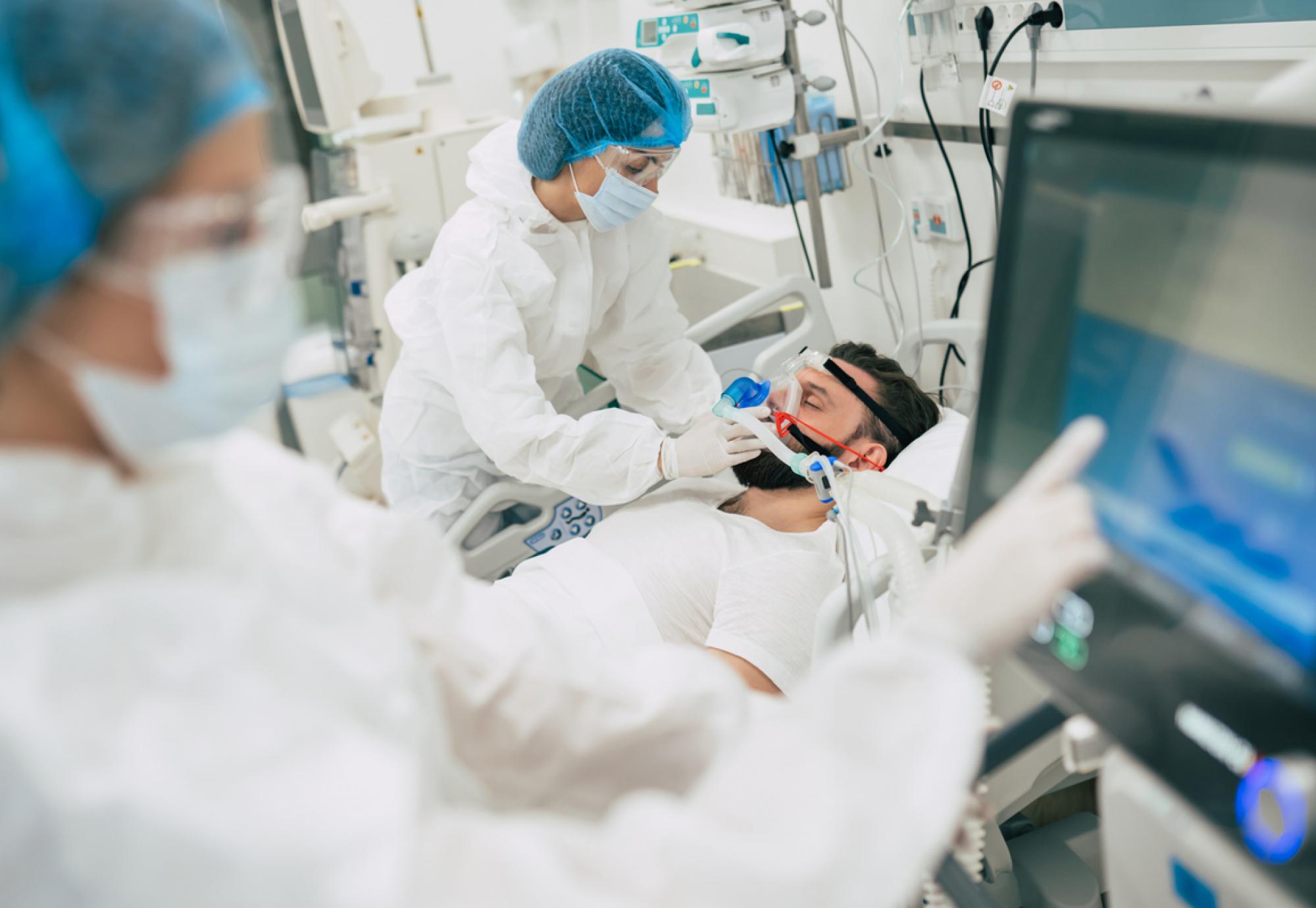A ground-breaking new study could change the landscape of future heart and lung treatments, health professionals have said.
The Covid-RV study was conducted in Scotland and was led by experts from NHS Golden Jubilee and the University of Glasgow, who were looking into the effects of Covid-19 on patients in Intensive Care Units (ICU).
The study, the first of its kind, spanned 10 ICUs across Scotland and examined 121 critically ill patients in the aim of garnering a greater understanding of the impacts of Covid-19 on the sickest patients who require invasive ventilation.
The research found that one in three patients exhibited abnormalities on the right side of the heart – the area that pumps blood to the lungs.
Lead Author of the study Dr Philip McCall, Honorary clinical senior lecturer at the University of Glasgow and Consultant in Cardiothoracic Anaesthesia and Intensive Care at NHS Golden Jubilee, said: “A combination of factors create the perfect storm for Covid-19 to damage the right side of your heart, which ultimately can cause death.
“If you’re pumping blood to the lungs and the lungs become very sick, you have an additional problem because the lungs are not willing to receive blood.
“This is a very difficult condition to spot unless you are specifically looking for it. That is why the results of this study are so important. We now know that Covid-19 is a problem associated with not just ventilation but can affect the heart.”
The study was carried out at a significantly accelerated timeframe with research of this type usually taking approximately one year, however given the importance of the findings and the unprecedented circumstances we find ourselves in, the research was completed in six months and three weeks.
Chief Investigator of the study Dr Ben Shelley, Consultant in Anaesthesia and Intensive Care at NHS Golden Jubilee, said: “The study has revealed that there is no doubt Covid-19 affects the heart and has a major impact on outcomes for the patient.
“However, now that we know this actually happens, and have a better understanding of how it affects people, we can plan for the future and put in place new care plans and treatments to help combat this.
“For example, ultrasound scans can be used differently to focus in on early warning signs and areas we now know to be at risk.
“If we are able to see these warning signs early enough, clinicians can explore the causes of any complications and start new treatments as soon as possible, potentially improving outcomes for the sickest patients with Covid-19.
“This kind of knowledge is invaluable, not only in combatting any future waves of Covid-19, but in planning for future pandemics to allow people to be treated more effectively. These findings also have several fascinating areas which could be expanded on to help care for other lung conditions in general.”
More information about the study is available here.



















